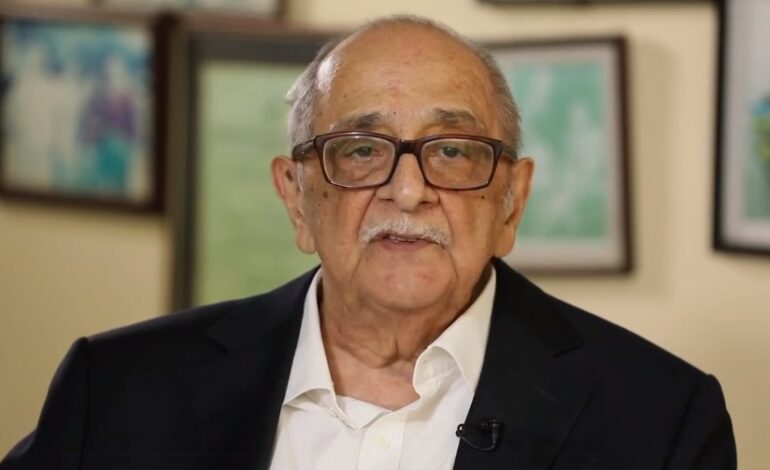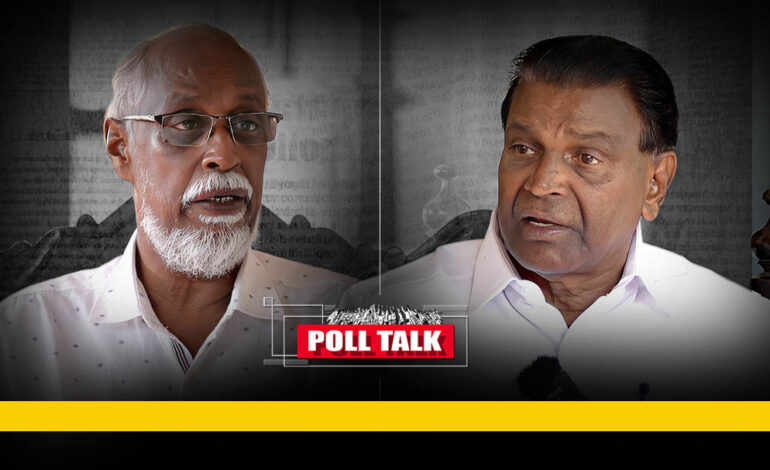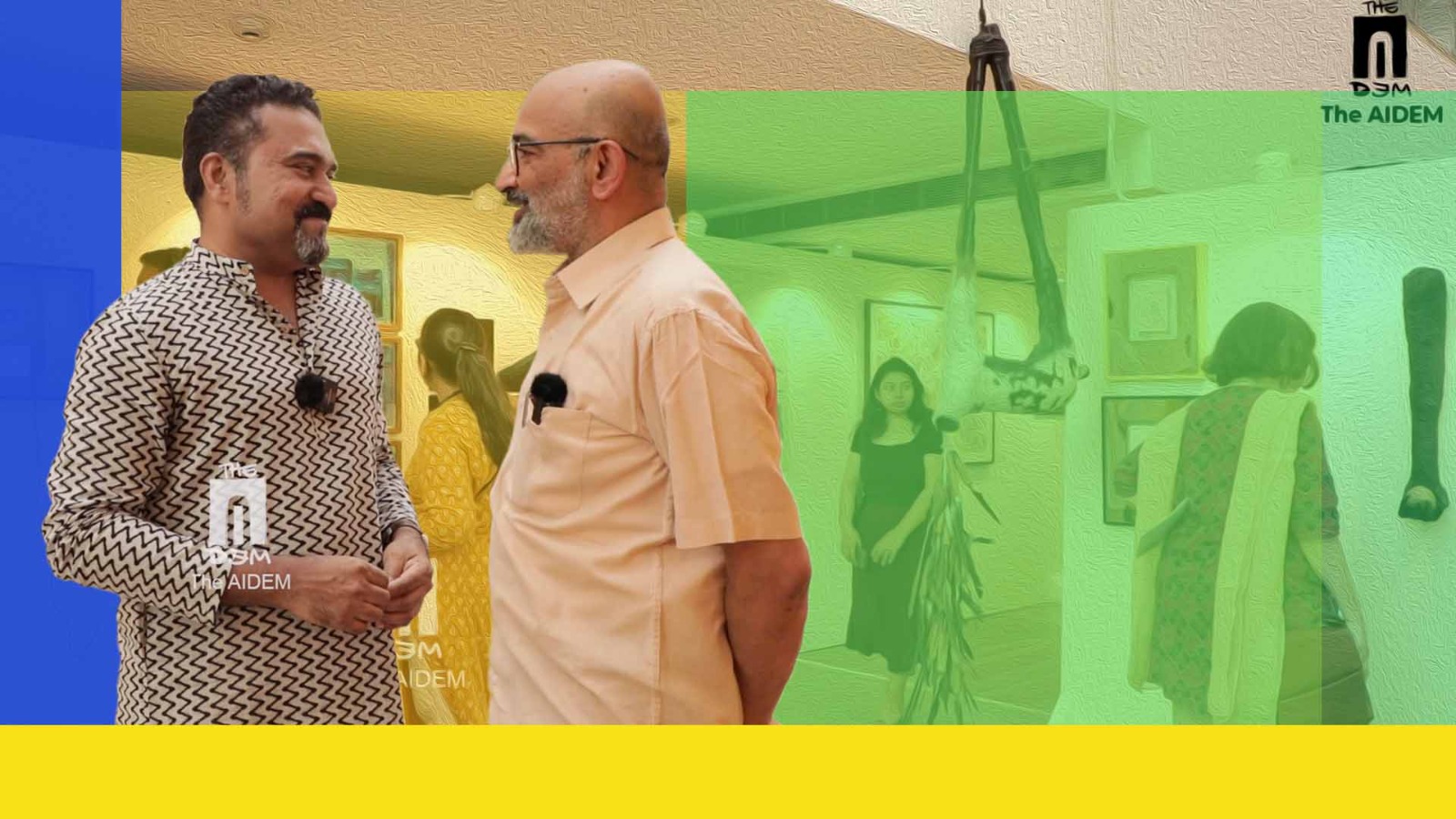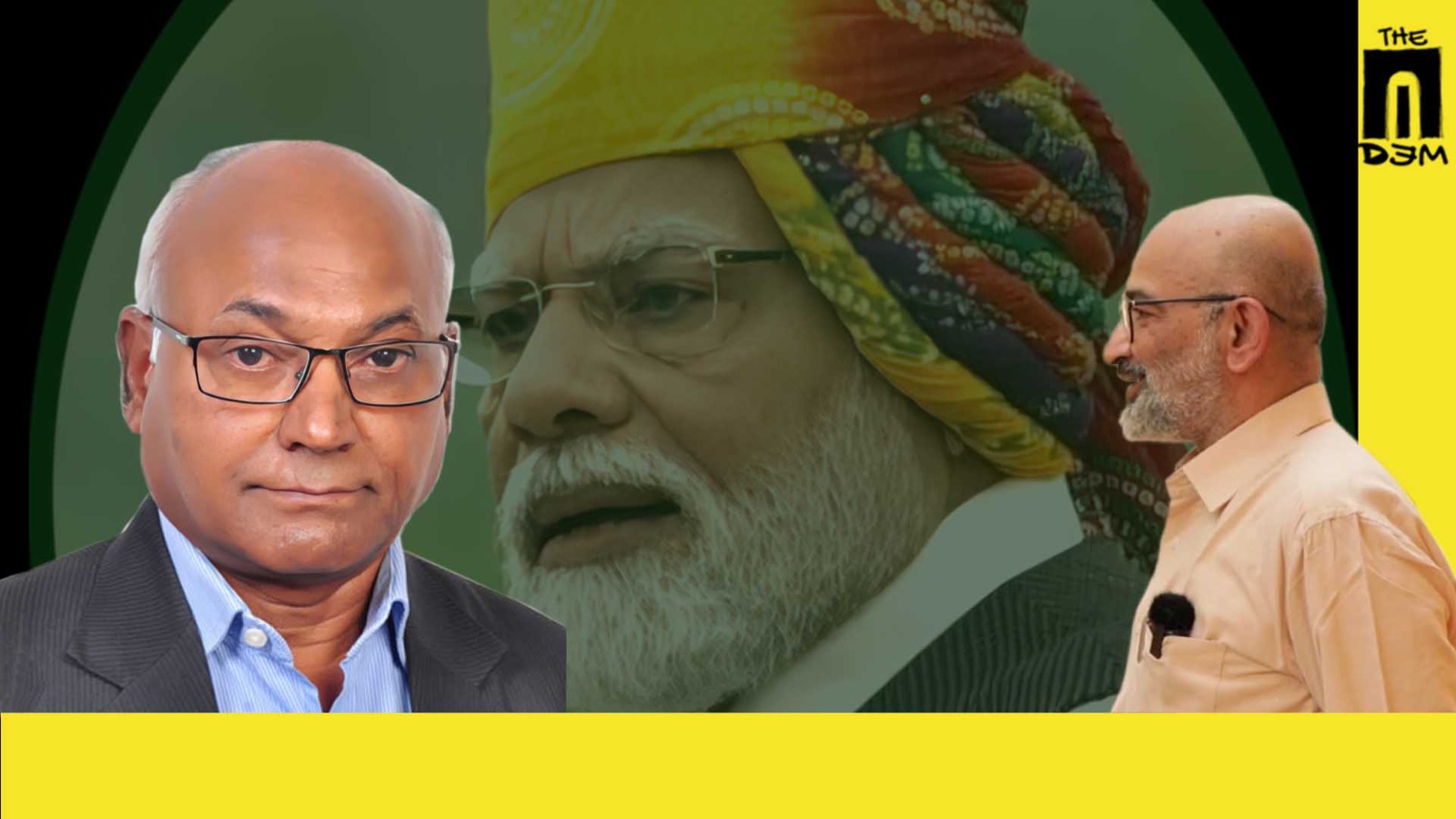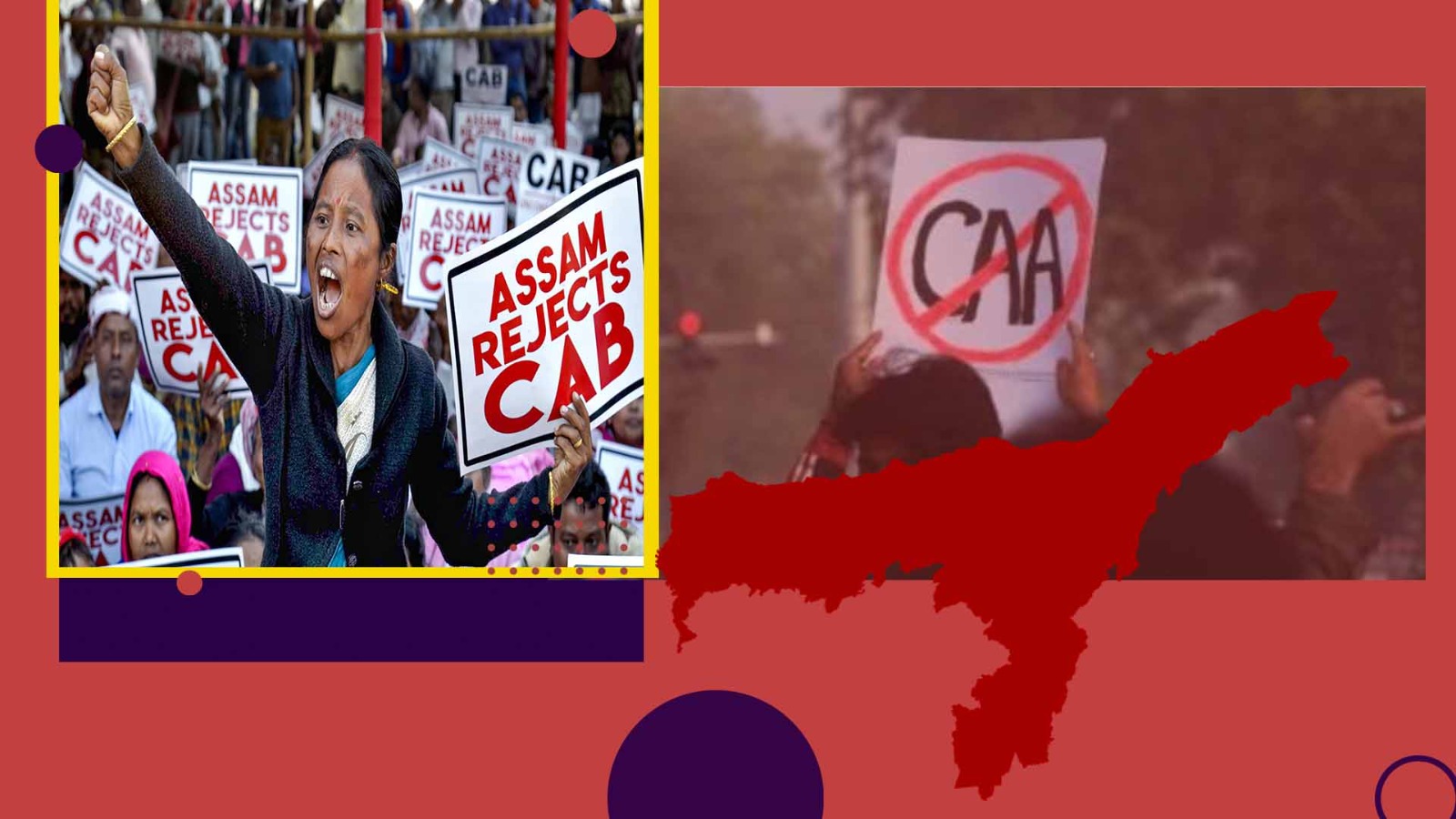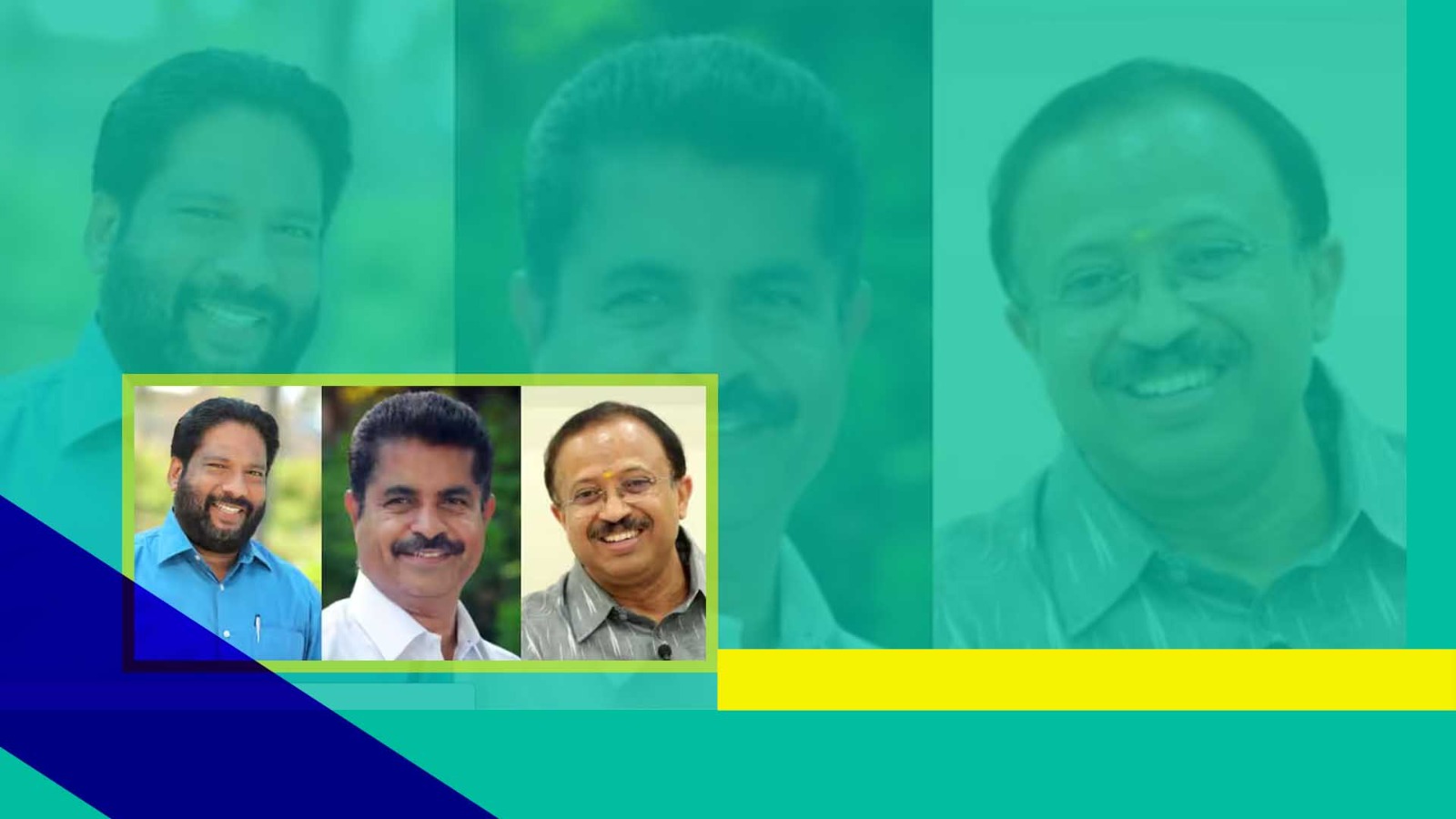“Dil ki baat, Dil se, Dilon tak”
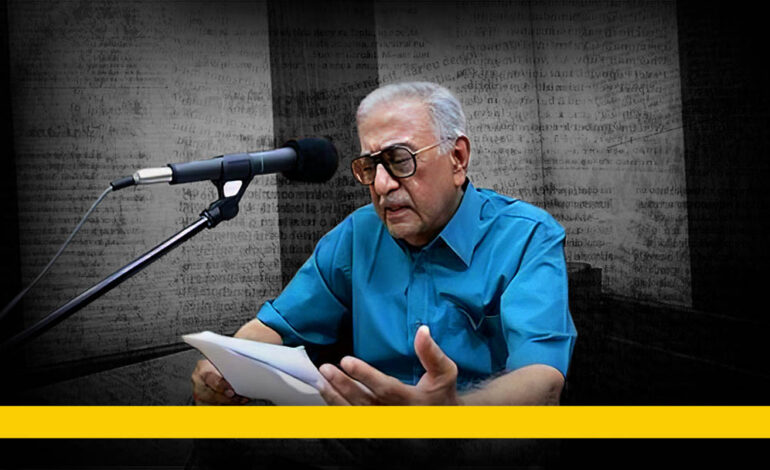
Remembering Ameen Sayani, the legendary broadcaster
Hindi was like a foreign tongue during my teenage years. But the affinity for Hindi songs had become quite pronounced, thanks to the inimitable voice and style of Ameen Sayani, who presented the programme, “Binacca Geetmala” on Radio Ceylon. He made us fall in love with them, although the lyrics of the songs and most of what he said flew over the heads of those of us Malayalis, who were not familiar with the language. Some words of course became familiar by their sheer repetition like pyaar, dil, sama, bahaar and intezaar, which were enough to swathe us in the clouds of romance and lift our young hearts up to the skies.
It was the magic of Ameen Sayani’s voice that began with the endearing address “Behenon aur bhaiyon” and his style of narration, which did all that. The sad news of Ameen Sayani’s passing away has brought in a deluge of those memories, of our youthful crushes, of the endless planning of girl gangs, to watch some of those films which got released in the theatres in our hometown, in times when going out without an adult escort was not so usual and of swooning over the actors who sang those songs on screen.

It was more than forty years later, in Bangalore where I now reside, that I got to see him in person, albeit from a distance. He was 86 then, had a tottering gait and couldn’t stand up for long. On that evening, he took us through a rich repertoire of those old Hindi songs, chosen carefully by him weeks in advance, (as his co-compere and former Radio jockey of Bangalore FM, Vasanthi Hariprakash, later mentioned) and rendered that day by a host of talented singers, all the while seated on a chair on one part of the stage.
But although his physique and mobility demonstrated the ravages of aging, his voice still held sway and the audience, most of whom belonged to my generation, sat entranced with that wistful smile on their faces, as he shared snippets about the various composers, lyricists and singers whose songs were sung that night, just like he did in those days of yore.
I had by then, spent all of my adult life in the North and had learnt to appreciate the nuances of the poetic expressions in those songs that he had introduced to us long ago. This time, I listened, hanging on to each word that he uttered.
In the meanwhile, the You Tube had brought into my retired life a plethora of videos, old and new, enabling my access to those old broadcasts and many, many interviews of this eloquent radio jockey, now presenting a face to match that voice that had stayed with me, long after the television had taken over and one had given up listening to the radio.
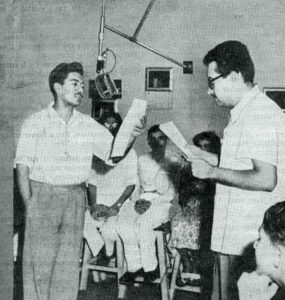
Listening to and watching those videos, I had learnt a lot about his childhood and his journey through the broadcasting world. He was the youngest of three brothers. His elder brother Hamid Sayani had been a broadcaster with All India Radio and it was this brother who was his guru and who had facilitated his entry into the same realm.
Both his parents, his father Dr. Jaan Mohammed Sayani and his mother Kulsum Sayan, had been closely associated with the Freedom struggle and with Gandhiji in particular. In fact, the association began even prior to that, as Gandhiji had interned for a while in the law firm of his grand uncle, Rahimatullah Sayani. Gandhiji had suggested to his mother, who had been involved in a project concerned with adult education, to bring out a publication in “saral Hindustani”, amalgamating both devanagri and urdu, the script for which would be in hindi, urdu and Gujarati. This magazine was edited, printed and published in their house. The emphasis was on making communication effortless and relatable, an aspect which appears to have been carried on to his own style of conducting his radio programmes.

When Ameen Sayani was around nine years old, his elder brother Hamid Sayani had taken him along to All India Radio and had indulged him by getting his voice recorded. “ I had recited a poem and I wasn’t at all happy with how it sounded when it was played back to me”, he had mentioned in one of those interviews. His association with All India Radio had continued from that point of time as his brother would get him to participate in radio plays involving children and many other such programmes, throughout his high school and college years.
All India Radio did not broadcast any programmes involving music in those days and that is how he had started his full-fledged career as a radio jockey with the sponsored programme “Binacca Geetmala” which was broadcast by Radio Ceylon.
That was in the year 1952. He was then twenty years old. The programme had continued as Cibacca Geetmala and then later on as “Colgate Cibacca Geetmala”. His was a very long career involving around 54000 radio programmes and around 19000 jingles. “When people would get bored of my talking in the radio programmes, I could offer them “Saridon” to relieve them of their head-ache and when that didn’t work, I could offer them a toothpaste that would make their teeth sparkle and urge them to sit through it with a smile”, he would humorously say about his jingles.
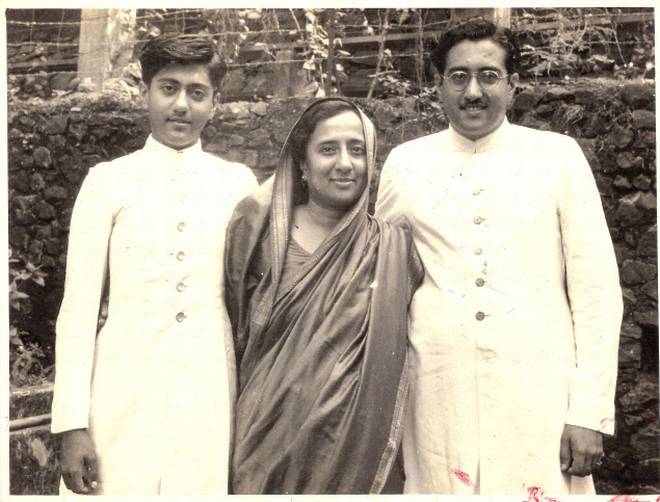
Although he had started out with radio programmes in English, he had stuck on to programmes in Hindi ever since the Binacca Geetmala programme took off. The radio programmes that he had hosted in the U.A.E, London, America, South Africa, New Zealand, Swaziland and elsewhere, were also all in Hindi. The only radio programme that he had later on compered in English was the “World Music Series of BBC, in a section in which he introduced Indian music to the English-speaking world.
In his own words “Dil ki baat, dil se, dil tak pahunchaana” was his style of connecting with his audience. (Communicate what your heart wants to say, in the language of the heart, to the hearts of those listening) and indeed, when you reflect on the mesmerizing effect he had on the listeners, one realizes that the feeling that he was talking directly to you, even when one did not fully comprehend what was being said (as in my case in those days long ago) was the key factor of his popularity. I have always maintained that the tone of what you say, says much more than what is being said. Ameen Sayani was a case in point.
His conversations were not apparently in chaste Hindi, but was liberally littered with colloquial expressions, Urdu and English. In one of his interviews, he speaks of how Kamleshwar, the well known writer and a respected figure of All India Radio had teased him saying that his manner of speaking was a corrupt version and was akin to committing murder of the Hindi language.
None of such criticism, had however, made him change his easy-flowing, laid back, friendly style to which everyone could relate. He would bemoan the attitude of such puritans of language and laugh it off, quoting Ghalib’s couplet, “Ya rabb na woh samjhe hai na samjhenge meri baat.. de aur dil unko.. jo na de mujhe zabaan aur” (Dear God… they have never understood, nor will they ever understand what I want to say….Give them a heart that will make them understand, as you haven’t given me a different kind of tongue).
During a phone- in live programme that was recorded in 2003, he had expressed his deep anguish at the rifts that was slowly happening in our country. “I have always based my life’s philosophy on certain precepts in our sacred books. In the Koran, we refer to the Divine presence as Rabbul Alameen” …the divine power that is behind everything in existence, in the Rig Veda, there is the verse, “ekam sat vipraah bahudha vadanti. So what is the need to quarrel over religions when they all point towards the same truth?”

He had then gone on to say, “Tell those who are trying to make you quarrel amongst yourselves that what they are doing is wrong, that it will lead to the breakdown of this land. Let us try and understand, let us get ourselves together before it becomes too late.”
On another occasion he had said, “yeh film sangeet jo hai.. Hindustan ko tootne se bachaane me sabse bada haath iska raha hai”. The outpouring on social media, would indeed substantiate what he said, for Hindi music lovers across all gridlines of today’s society, would seem to have come together to grieve the passing away of this doyen of the broadcasting world.
To misquote Ghalib’s original couplet,
“Hai aur bhi duniya me sukhanvar bahut acche, Kehte hai Ghalib ke” ka andaaz-e-bayaan aur”
(There many other better poets in this world, but it is said that Ghalib’s style of expression is unique)
“ Hai aur bhi duniya me “prasaarkartha”(broadcasters) bahut acche…kehte hai “Ameen Sayani” ka andaaz-e-bayaan aur”.


